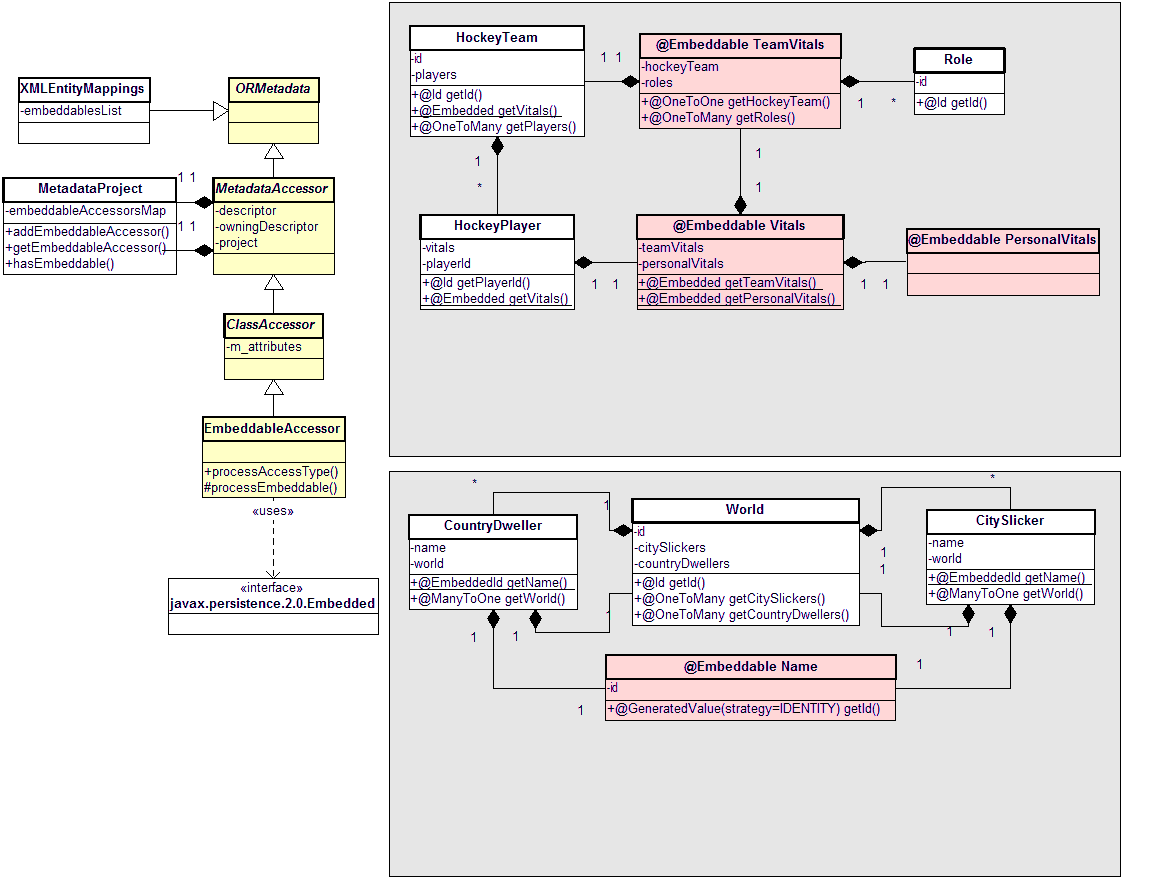Notice: This Wiki is now read only and edits are no longer possible. Please see: https://gitlab.eclipse.org/eclipsefdn/helpdesk/-/wikis/Wiki-shutdown-plan for the plan.
Difference between revisions of "EclipseLink/Development/JPA2.0/nested embedding"
< EclipseLink | Development
m (→Nested Embedding) |
m (→Work Required) |
||
| Line 25: | Line 25: | ||
==Implementation== | ==Implementation== | ||
==Work Required== | ==Work Required== | ||
| + | *For all tests verify that both JPA and ORM implementations adhere to the JPA 2.0 specification | ||
| + | *Extend test model in eclipselink.jpa.test | ||
| + | *Add model that includes an @EmbeddedId embedded composite primary key | ||
Revision as of 14:40, 22 September 2008
Contents
Nested Embedding
JPA 2.0 Root | Enhancement Request
References
- See section 2.1.5 and 9.1.34 "Embeddable Classes"/"Embeddable Annotation" of the JSR-220 JPA 1.0 API Specification
- See section 2.5, 2.6 and 9.1.12 "Embeddable Classes" of the JSR-317 JPA 2.0 API Specification
Issue Summary
- I1: Access type for an embeddable is determined by the entity or the embeddable in which it is embedded - see 2.5 of the spec.
General Solution
Analysis
- In the JPA 2.0 specification, the following changes to the description of embeddable classes are made.
- Collections of embeddables are supported
- @EmbeddedId annotation is used when the the composite primary key of an entity or mapped superclass is an embeddable
Design
Test Model
The following test model from eclipselink.jpa.test/org.eclipse.persistence.testing.models.jpa.complexaggregate.HockeyTeam will be used. The embeddable classes Vitals, TeamVitals and PersonalVitals are bound to their owning Entity (HockeyPlayer) and are not sharable in HockeyTeam or Role.
Implementation
Work Required
- For all tests verify that both JPA and ORM implementations adhere to the JPA 2.0 specification
- Extend test model in eclipselink.jpa.test
- Add model that includes an @EmbeddedId embedded composite primary key

